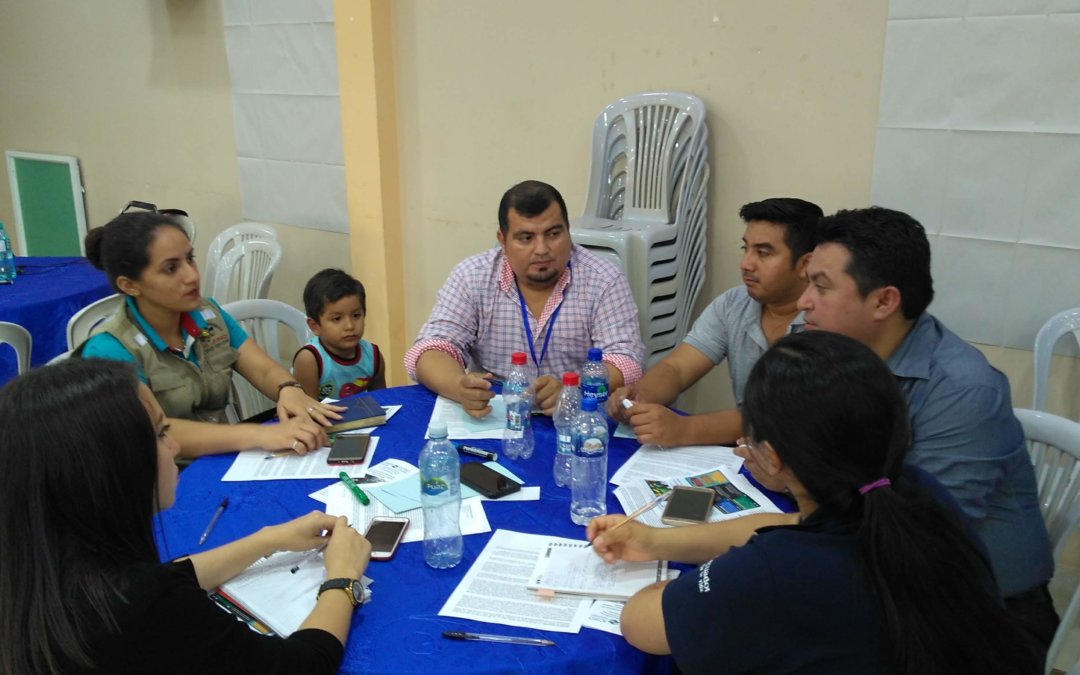
“It is essential for not only national authorities related to the mining sector, but also for those linked to the environmental, labor and educational sectors, to get acquainted with the reality of ASM in order to support its sustainable development in the country.” This was one of the thoughts that emerged at Ecuador’s Gold Dialogues, which took place on July 9, 11 and 13 at the Zaruma and Camilo Ponce Enríquez districts, and in the city of Quito. The main subject of the three days of talks was the educational needs for the development and transformation of the artisanal and small-scale mining sector in southern Ecuador.
These three days of multi-stakeholder talks were made possible by the funding of the TransMAPE project, as were part of the scheduled activities to evaluate the educational needs of the ASM sector by a consultant hired by the CIRDI (Canadian International Resources and Development Institute). These dialogues helped with the detection of the educational needs of the main stakeholder groups, with the purpose of offering a practical training program tailored to the needs of gold ASM in southern Ecuador, as well as to determine systemic educational needs – more specifically, those of vulnerable groups.

Officials of the Ecuadorean mining, environmental and educational sector; university professors; local mining authorities and processing plant representatives, as well as those of the production sector, actively participated of the three days of talks.

Gold Dialogues is a method developed by the Alliance for Responsible Mining (ARM) that has been increasingly gaining acceptance to facilitate a respectful dialogue and foster a consensus among sector stakeholders around the issues affecting ASM. Since 2008, Gold Dialogues talks have been hosted in the United Kingdom, Bolivia, Colombia and Peru; various stakeholders have been convened – from jewelers to large-scale mining representatives – to discuss issues related to the sector, such as the commercialization of minerals from small-scale mining, the relationship between ASM and large-scale mining and the challenges of legalizing the sector, among others.
The methods of Gold Dialogues include aspects of World Café and Structured Dialogue.
The World Café method reflects and imitates natural conversation processes in the real world. This method allows for the generation of conversation and social learning networks, fostering a direct communication and the sharing of experiences among a large number of people on important issues.
Structured Dialogue is a process that aims to put the spotlight on voices that usually go unheard in decision-making processes.

